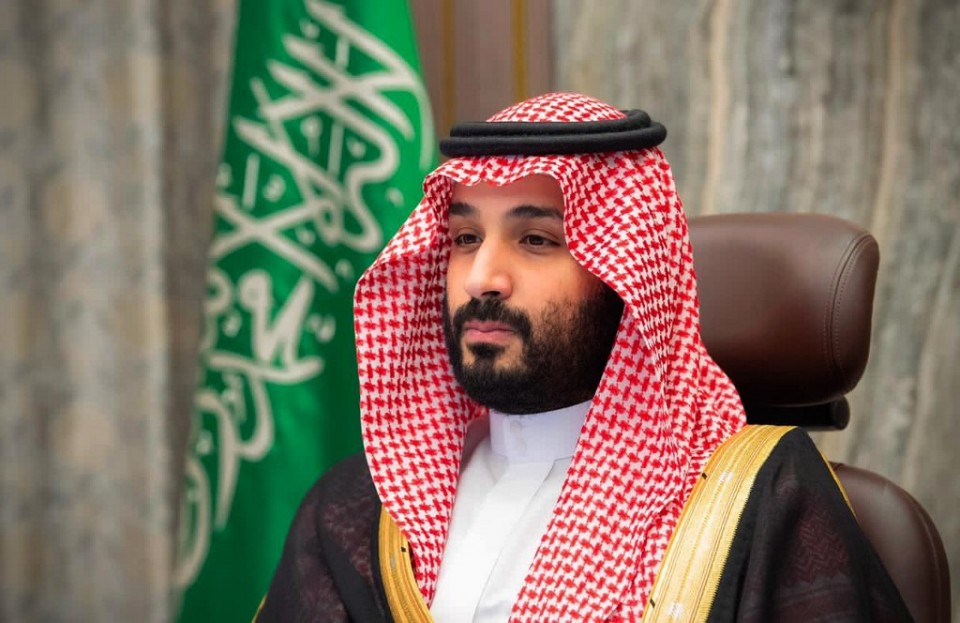
by Anuj Chopra
RIYADH, Saudi Arabia (AFP) — Saudi Crown Prince Mohammed bin Salman pledged Thursday to strike extremists with an “iron fist”, after a bombing against a gathering of Western diplomats was claimed by the Islamic State group.
The bomb blast struck a World War I commemoration at a non-Muslim cemetery in Jeddah on Wednesday, just two weeks after a guard at the French consulate in the Red Sea city was wounded by a knife-wielding Saudi citizen.
The attacks, which underscore Muslim fury over French satirical cartoons of the Prophet Mohammed, come as Saudi Arabia prepares for the G20 leaders’ summit later this month — the first to be hosted by an Arab nation.
“We will continue to confront any extremist… behaviour and ideas,” Prince Mohammed said in an address to the Shura Council, the top government advisory body.
“We will continue to strike with an iron fist against all those who want to harm our security and stability,” he said, according to the transcript of his speech published by the official Saudi Press Agency.
Prince Mohammed, the kingdom’s de facto ruler, warned those seeking to carry out jihadist acts of a “painful and severe punishment”.
Wednesday’s attack in Jeddah left at least two people wounded, including a Greek policeman and a Saudi official.
A British citizen was also believed to have been wounded.
Diplomats from France, Greece, Italy, Britain and the United States attended the Armistice Day commemoration ceremony in Jeddah, their embassies said.
The Islamic State group on Thursday claimed responsibility for the bombing, saying it was to protest the cartoons printed by the satirical French magazine Charlie Hebdo.
A statement by IS’s propaganda arm Amaq said the attack “primarily targeted the French consul”.
The group offered no evidence of its involvement.
In a separate incident on Thursday, Dutch police arrested a man after multiple shots were fired at the Saudi embassy in The Hague, causing damage but no injuries.
It was not clear whether the incident, which the Saudi government condemned as “cowardly”, was linked to the attacks in the kingdom.
‘Extreme vigilance’
The French embassy in Riyadh, meanwhile, has urged its nationals in Saudi Arabia to exercise “extreme vigilance”.
The warning followed an attack at the Jeddah consulate on October 29, the same day a knife-wielding man killed three people at a church in Nice in southern France.
French President Emmanuel Macron has vigorously defended the right to publish cartoons, but he has also tried to assuage Muslim fury over his remarks.
Macron’s stance has prompted protests in several countries at which portraits of France’s president were burnt, and a campaign to boycott French products.
Saudi Arabia — home to Islam’s holiest sites — has criticised the cartoons, saying it rejected “any attempt to link Islam and terrorism”.
In his speech, Prince Mohammed said he hopes “the world will stop attacking religious symbols under the slogan of freedom of expression” as that creates a “fertile environment for extremism and terrorism”.
Saudi Arabia, long accused of exporting its ultra-conservative Wahhabist Sunni doctrine around the world, is itself a victim of domestic terror attacks.
Prince Mohammed, who pledged in 2017 to return Saudi Arabia to an “open, moderate Islam”, has sought to roll back the influence of the ultra-conservative religious establishment.
“Extremism is no longer tolerated in the kingdom of Saudi Arabia,” Prince Mohammed said in his speech.
The heir to the Saudi throne has curbed the influence of the once-powerful religious police, as he permits mixed-gender music concerts, cinemas and other entertainment options that appeal to a majority young population.
But simultaneously, the prince has launched a sweeping crackdown on dissent and free speech, arresting women activists, clerics and journalists as well as royal family members.
Saudi Arabia is also grappling with a sharp coronavirus-led economic downturn, which has triggered unpopular austerity measures, including the tripling of its value added tax and the suspension of a monthly allowance to state employees.
While acknowledging the “great pain” caused by the austerity drive, Prince Mohammed spoke of government efforts to tackle high unemployment and fight rampant corruption.
© Agence France-Presse








